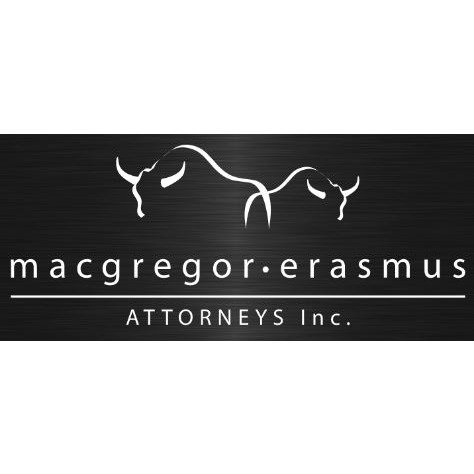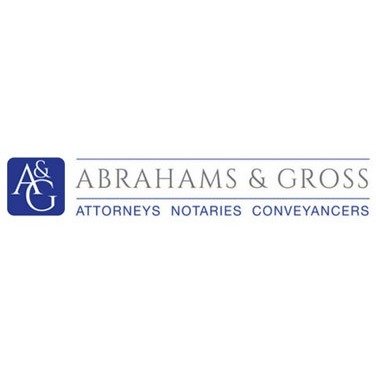Best Franchising Lawyers in Cape Town
Share your needs with us, get contacted by law firms.
Free. Takes 2 min.
List of the best lawyers in Cape Town, South Africa
About Franchising Law in Cape Town, South Africa
Franchising Law in Cape Town, South Africa, regulates the relationship between franchisors (the parent company) and franchisees (local business owners). The franchising framework is similar to the rest of the country and is guided by a body of rules and regulations under the Franchise Association of South Africa. These laws stipulate the rights and obligations of each party and aim to ensure fairness, transparency and ethical business practices in all franchising transactions.
Why You May Need a Lawyer
A lawyer's guidance can be beneficial when considering purchasing, operating, or selling a franchise. They can help analyse franchise agreements to ensure terms and conditions are fair and compliant with local laws. In addition, lawyers can help resolve disputes between franchisors and franchisees, conduct due diligence, and assist with franchise set-up or termination procedures. Essentially, a lawyer will ensure your rights are protected throughout the franchising process.
Local Laws Overview
The key elements of local laws applicable to franchising in Cape Town revolve primarily around the Consumer Protection Act (CPA) and guidelines provided by the Franchise Association of South Africa. The CPA requires full disclosure and fair business practices. Franchisors must provide a detailed disclosure document at least 14 days before signing a franchise agreement. It is also required that franchise agreements are reasonably balanced, reflecting rights and obligations for both parties.
Frequently Asked Questions
What are common disputes in franchising?
Common disputes involve disagreements on franchise fees, scope of territory, supply issues, or non-compliance with the franchise agreement. A lawyer can help in mediating or legally resolving such disputes.
What should a franchise agreement include?
A franchise agreement should have clear terms on franchise fees, territory, training and support, your obligations, renewal and termination conditions among other things. It's crucial to seek legal guidance before signing the agreement.
Can I end a franchise agreement prematurely?
It depends on the conditions outlined in your franchise agreement. A lawyer can help interpret such conditions and advise on the best way to handle such a situation.
What if the franchisor breaches the agreement?
If you suspect that the franchisor has breached your agreement, seek legal guidance immediately. A lawyer will guide you through the steps you need to take to protect your rights.
What are the roles of the Franchise Association of South Africa?
The Franchise Association of South Africa provides advice, guidelines, and standards for franchising in South Africa. It aims to uphold ethical franchising across the country, and provides resources for both franchisors and prospective or operating franchisees.
Additional Resources
You can seek further information and understanding through the Franchise Association of South Africa, South African Department of Trade and Industry, and Consumer Protection Act guidelines which are all authoritative sources. Local law libraries and online legal forums can also be valuable resources when researching franchising specifics in Cape Town.
Next Steps
If you require legal assistance, your first step should be to consult with a lawyer experienced in franchising law. They can help review your specific situation, interpret complex legal documents, advise on your rights and obligations, and represent you in case of disputes. Take time to find a lawyer who not only understands franchising law, but also has a good understanding of the local market dynamics in Cape Town.
Lawzana helps you find the best lawyers and law firms in Cape Town through a curated and pre-screened list of qualified legal professionals. Our platform offers rankings and detailed profiles of attorneys and law firms, allowing you to compare based on practice areas, including Franchising, experience, and client feedback.
Each profile includes a description of the firm's areas of practice, client reviews, team members and partners, year of establishment, spoken languages, office locations, contact information, social media presence, and any published articles or resources. Most firms on our platform speak English and are experienced in both local and international legal matters.
Get a quote from top-rated law firms in Cape Town, South Africa — quickly, securely, and without unnecessary hassle.
Disclaimer:
The information provided on this page is for general informational purposes only and does not constitute legal advice. While we strive to ensure the accuracy and relevance of the content, legal information may change over time, and interpretations of the law can vary. You should always consult with a qualified legal professional for advice specific to your situation.
We disclaim all liability for actions taken or not taken based on the content of this page. If you believe any information is incorrect or outdated, please contact us, and we will review and update it where appropriate.















